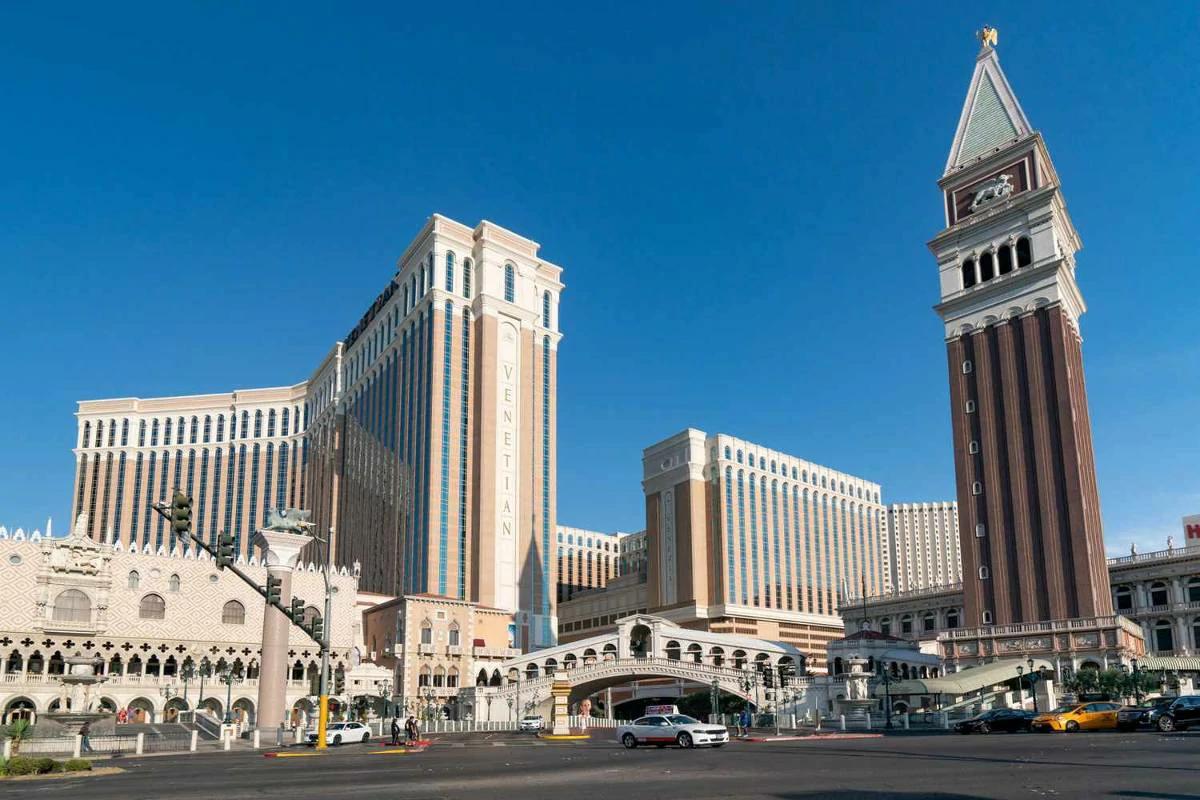What is the most expensive hotels in the US? Answer is – The title of the most expensive hotel in the US can be somewhat fluid, with nightly rates fluctuating based on season and demand. However, there are a few contenders that consistently rank among the priciest. These include the Empathy Suite at the Palms Casino Resort in Las Vegas (often topping the list), The Mark Hotel Penthouse in New York City, and luxury resorts like the Amangiri in Utah or the Post Ranch Inn in Big Sur, California. These hotels and suites offer the ultimate in extravagance, from private pools and butlers to breathtaking views and exclusive amenities.
Summary
- The costliest hotels in the US routinely change, but some consistently appear at the top.
- Exclusive suites like the Empathy Suite in Las Vegas can command the highest price tags.
- Luxury resorts in stunning locations also offer incredibly expensive accommodations.
- The most expensive hotels provide unparalleled extravagance and amenities.
The Most Expensive Hotels in the US
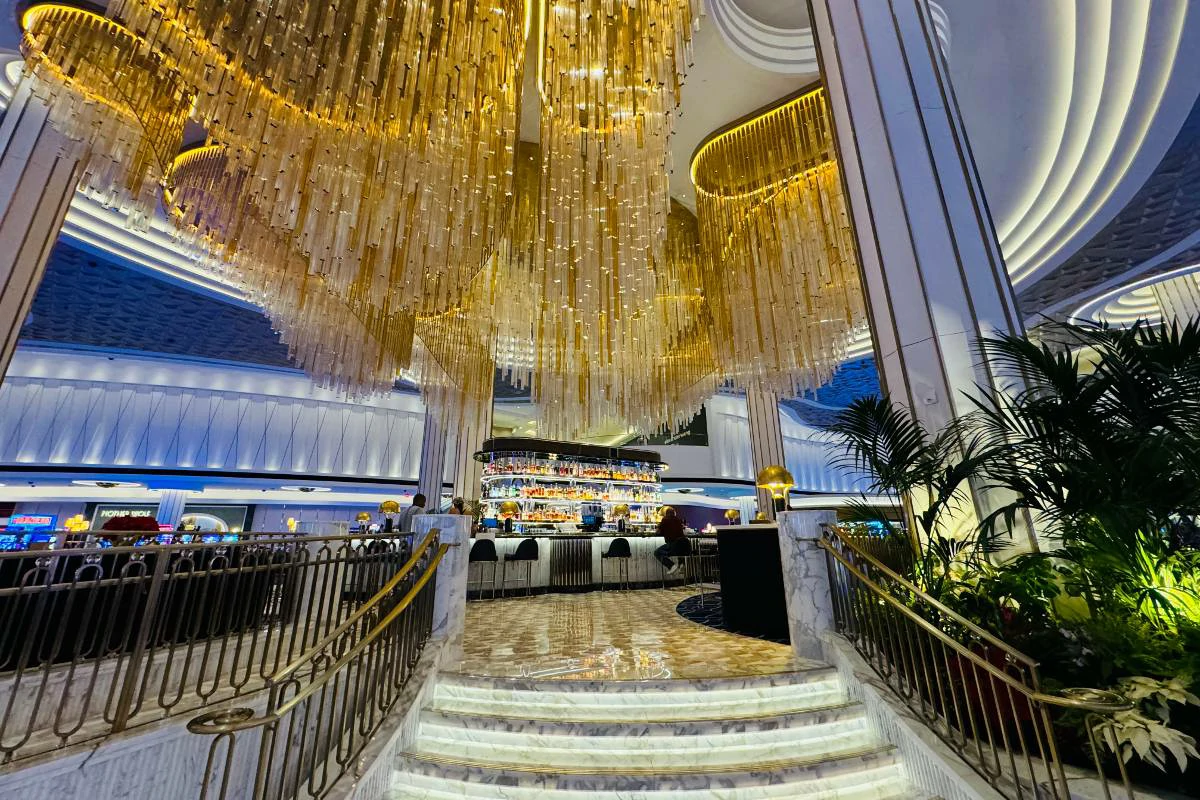
When we talk about the “most expensive hotel in the US,” it’s essential to understand the nuances behind the label. The concept of expensive is relative. A room rate that seems exorbitant to one traveler might be considered the norm for another.
Additionally, several factors can dramatically influence hotel prices, making the title of “most expensive” somewhat fluid.
Defining “Most Expensive” in the Hotel Context
Here’s a breakdown of how we can approach the idea of “most expensive”:
Nightly Rate: The most straightforward metric is the base nightly rate for a standard room or suite. This price tag creates the initial benchmark for how expensive a hotel can be.
Average Price Over Time: Due to fluctuations in demand, a hotel’s average nightly rate throughout the year might give a more accurate picture of its overall costliness. Examining this average helps eliminate outliers caused by a single peak weekend.
Exclusivity and Add-Ons: The true cost of the most expensive hotels extends beyond the room rate. Mandatory resort fees, the price of dining experiences, spa treatments, and activities on-site can significantly increase the total a guest might pay beyond what’s initially advertised.
Factors Influencing Hotel Prices
Let’s explore the main factors that cause fluctuations in hotel prices, ultimately impacting which ones claim the “most expensive” title:
Seasonality: High-demand seasons, like holidays or major events in a particular city, will drive up prices across the board. A moderately expensive hotel might become temporarily unaffordable during its peak season. For example, hotel rates in New York City skyrocket around New Year’s Eve celebrations.
Demand: Popularity and a sense of scarcity create increased demand. Hotels with a reputation for unparalleled luxury, exclusive amenities, or limited availability will command higher prices due to the desire to secure a reservation.
Location: Prime real estate in highly desirable destinations naturally comes with a premium. A hotel on a pristine stretch of California coastline or with sweeping views of the Manhattan skyline will carry a higher price tag due to its location alone.
Janice Lintz Expert Opinion
Janice Lintz, a seasoned travel consultant and hospitality writer, comments: “The most expensive hotels aren’t just selling a room for the night; they’re selling a complete experience. This means the ambiance, the service, the sense of access to something unattainable for most – these intangible elements play a major role in justifying the cost.”
The Top Contenders for Most Expensive Hotel
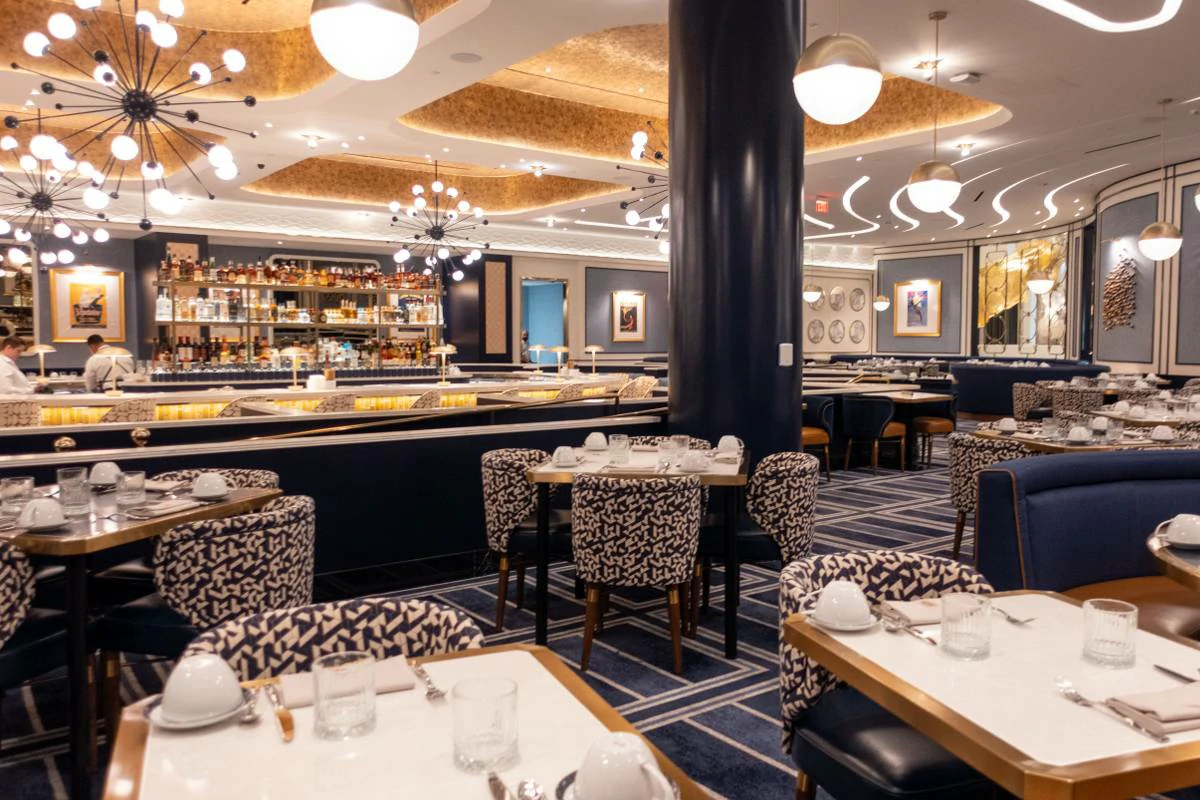
While the title of the absolute most expensive hotel in the US may shift depending on the factors we explored earlier, certain properties consistently reign supreme in the world of luxury accommodations.
1. Empathy Suite, Palms Casino Resort (Las Vegas)
The Empathy Suite, located within the Palms Casino Resort in Las Vegas, routinely garners the title of America’s most expensive hotel suite. With a nightly rate that often starts at a staggering $100,000, it’s fair to wonder what could possibly justify such a price tag. Here’s a breakdown of what sets the Empathy Suite apart:
Over-the-Top Opulence: At over 9,000 square feet, the Empathy Suite was designed by renowned British artist Damien Hirst. His signature provocative style is evident throughout the two-story space. Features include a cantilevered pool overlooking the Las Vegas Strip, a 13-seat curved bar, original artwork (including Hirst’s iconic shark suspended in formaldehyde), and enough lavish furnishings to fill a small mansion.
Unparalleled Exclusivity: The Empathy Suite isn’t just about what’s inside – it’s about access. Guests enjoy 24/7 butler service, a private chauffeured car, a tour of the Palms’ art collection, and $10,000 credit to use within the resort.
The “Experience” Factor: The cost of the Empathy Suite extends far beyond accommodations. It’s about curating an entirely exclusive, over-the-top Vegas experience designed to cater to a guest’s every whim.
Steve Fricker Expert Opinion
Steve Fricker, a Las Vegas-based luxury travel expert, explains: “The Empathy Suite is about more than luxury; it’s about notoriety and bragging rights. It’s designed for a clientele who want an experience no price tag can truly quantify.”
Intriguing Details About the Empathy Suite
Damien Hirst’s Artwork: Love it or hate it, the inclusion of Hirst’s original artwork (estimated at a value of around $10 million) contributes significantly to the Empathy Suite’s overall cost.
Guest Profile: The suite attracts a specific clientele, typically including high-rollers at the casino, celebrities, and the ultra-wealthy seeking a truly unforgettable experience.
Booking Requirements: The Empathy Suite isn’t readily bookable online. Reservations require a hefty deposit and likely a vetting process to ensure guests can comfortably handle the cost.
Should You Consider the Empathy Suite?
Unless you’re a multi-millionaire with a penchant for the extreme, the Empathy Suite probably falls firmly into the category of “it’s fun to dream about.”
However, that doesn’t diminish the fascination it holds as an example of how far the concept of hotel luxury can go.
2. The Mark Hotel Penthouse (New York City)
Located in the heart of Manhattan’s Upper East Side, The Mark Hotel Penthouse is truly a sight to behold. With a nightly rate that can reach $75,000 or more, it’s the embodiment of New York City opulence. Let’s delve into what makes it so special:
Expansive Elegance: Occupying the top two floors of The Mark Hotel, the penthouse offers a staggering 10,000 square feet of living space. This includes five bedrooms, six bathrooms, a grand living room (with ceilings soaring 26-feet high), and a dining room seating 24.
Stunning Outdoor Space: The jewel of the penthouse is undoubtedly its 2,500 square foot rooftop terrace overlooking Central Park and the dazzling Manhattan skyline. It’s a private oasis in the middle of the bustling city.
World-Class Service: Guests of the penthouse enjoy top-tier service. This includes a dedicated team, access to the Michelin-starred chef Jean-Georges Vongerichten for in-suite dining, and around-the-clock amenities like hair styling by the Frédéric Fekkai Salon.
Sarah Dandashy Expert Opinion
Sarah Dandashy, a New York City-based luxury travel consultant and author of the blog “The Luxe Handbook” notes: “The Mark Hotel Penthouse is about classic and timeless elegance amplified to the highest degree. It’s for those seeking a taste of New York’s upper echelon lifestyle with the utmost privacy.”
Unique Features of The Mark Hotel Penthouse
The Library: The penthouse includes a beautifully appointed library, adding another touch of sophistication to the space.
Technology: Despite its classic aesthetic, the penthouse is equipped with state-of-the-art technology and smart controls for lighting, climate, and entertainment systems.
High-Profile Clientele: Like its Vegas counterparts, discretion is paramount. However, The Mark Hotel Penthouse has reportedly hosted guests like Meghan Markle (pre-royal wedding), Oprah Winfrey, and numerous fashion icons.
The Right Fit for the Penthouse?
The Mark Hotel Penthouse isn’t for the casual traveler. It’s designed for a clientele seeking unparalleled spaciousness within an iconic NYC setting, along with bespoke service to make any wish a reality.
3. Amangiri (Utah)
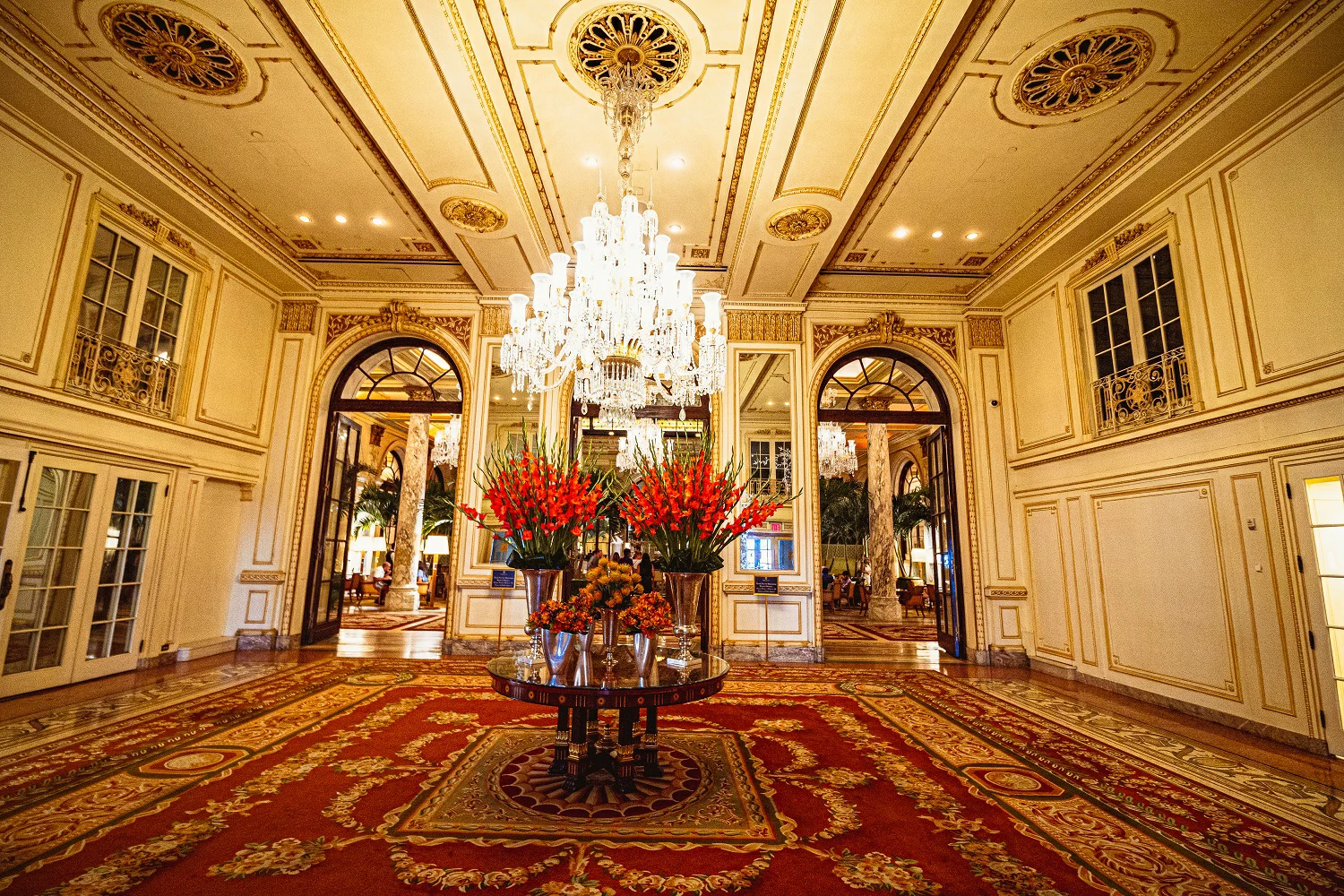
Amangiri, meaning “peaceful mountain,” is situated on 600 acres in Canyon Point, Utah. It’s a testament to minimalist architecture blending seamlessly with the ruggedly beautiful surroundings. With nightly rates often exceeding $3,500, here’s what sets it apart as an ultra-luxury destination:
Unparalleled Seclusion: Amangiri’s remote location offers a sense of privacy and escape like few other places in the US. Surrounded by ancient rock formations, guests experience a level of tranquility that cannot be found in cities.
Design Inspired by Nature: The resort’s architecture is awe-inspiring, integrating natural rock formations, raw materials, and a color palette mirroring the desert landscape. This creates a seamless transition between the indoors and the breathtaking scenery.
Immersive Experiences Amangiri emphasizes experiences. From hot air balloon rides over the canyons and hikes on private trails to guided stargazing sessions in the pristine night sky, the focus is on creating unforgettable moments attuned to the environment.
Wellness at its Core: Amangiri boasts a 25,000-square-foot spa with treatments inspired by Navajo traditions, a vast pool built into a rock formation, and yoga and fitness offerings designed to complement the serene setting.
Melissa Biggs Expert Opinion
Melissa Biggs, a travel writer specializing in adventure and wellness destinations, explains: “Amangiri is about the luxury of space, time, and connection with the natural world. It attracts those seeking a transformative escape rather than simply a beautiful place to stay.”
What Makes Amangiri So Unique
Commitment to Preservation: The Aman brand, known for its remote, ultra-luxury properties, places a high value on conservation and working in harmony with the natural environment. This is evident in Amangiri’s design and its low-impact approach.
Bespoke Itineraries: The resort emphasizes personalized experiences. Guests collaborate with staff to curate activities perfectly aligned with their interests, ensuring every stay is unique.
A-list Appeal: Amangiri’s remote location and emphasis on privacy make it a popular choice for celebrities and those seeking a discreet getaway.
Is a Stay at Amangiri Justified?
The value proposition of Amangiri lies in its ability to deliver a truly singular experience. It appeals to discerning travelers who prioritize a pristine environment, transformative wellness offerings, and impeccable service in a hyper-exclusive setting.
4. Post Ranch Inn (Big Sur, California)
Perched on a cliff 1,200 feet above the Pacific Ocean, Post Ranch Inn embodies a unique blend of rustic elegance and an eco-conscious ethos. With nightly rates easily topping $2,500 for its most sought-after accommodations, it consistently ranks as one of the most expensive hotels in the US. Here’s what makes it so special:
Architectural Harmony with Nature: The inn’s organic architecture is a marvel. Guest houses, built from wood, stone, and glass, blend seamlessly with the coastal landscape. Structures feature grass-covered roofs, expansive windows, and private decks maximizing the jaw-dropping ocean views.
Unmatched Big Sur Scenery: The prime location within Big Sur means access to iconic vistas, dramatic cliffs plunging into the sea, hiking trails through redwood groves, and pristine beaches. Post Ranch Inn offers a front-row seat to California’s wild beauty.
Sustainability Focus: The inn was designed with environmental sensitivity at its core. Green initiatives include solar power, radiant floor heating, and natural materials minimizing impact on the fragile surroundings.
Immersive Activities: Post Ranch Inn encourages guests to connect with nature. Experiences include guided hikes, stargazing, falconry demonstrations, garden tours focusing on their organic produce, and even sessions with a resident shaman.
Karen Loftus Expert Opinion
Karen Loftus, a California-based travel writer and photographer specializing in luxury destinations, notes: “Post Ranch Inn is about indulgence without sacrificing connection to the environment. It’s for those who value sustainability as much as they do the finer things in life.”
Post Ranch Inn’s Unique Allure
Restaurant with a View: Sierra Mar, the inn’s acclaimed restaurant, boasts panoramic ocean views and a menu showcasing the bounty of California produce. It’s a dining experience just as memorable as the accommodations.
Ultimate Relaxation: With infinity pools cantilevered over the cliffs, a world-class spa offering nature-inspired treatments, and the soothing soundtrack of the Pacific Ocean, Post Ranch Inn is designed for deep relaxation.
Adults-Only Sanctuary: The inn maintains a tranquil atmosphere by catering exclusively to adults, making it a haven for couples or those seeking a solo retreat.
The Right Fit for Post Ranch Inn?
Post Ranch Inn appeals to those who want a luxurious escape without compromising their eco-conscious values. It’s for travelers who find the natural world just as invigorating as the finest amenities.
5. Other Noteworthy Expensive Hotels
Little Palm Island Resort & Spa, Florida Keys: Located on a private island accessible only by boat or seaplane, this exclusive resort offers thatched-roof bungalows, pristine beaches, and a focus on tranquility. Nightly rates often exceed $2,000, making it a secluded paradise for those seeking escape.
The Point, Upstate New York: Nestled in the Adirondack Mountains, The Point is a former Rockefeller estate transformed into an all-inclusive resort emphasizing rustic elegance. Think log cabins with opulent interiors, gourmet cuisine, and activities like ice fishing or boating on the lake. The exclusivity and personalized experience drive its premium price point.
Four Seasons Resort Hualalai, Hawaii: Occupying a prime oceanfront location on the Big Island of Hawaii, this Four Seasons resort blends top-tier amenities with Hawaiian hospitality. Oceanfront villas, world-class golf courses, and a diverse range of activities make it a haven for those seeking the ultimate tropical getaway with no expense spared.
Blackberry Farm, Tennessee: This sprawling estate in the foothills of the Smoky Mountains offers an idyllic blend of Southern charm and outdoor adventures. Guests enjoy gourmet farm-to-table cuisine, curated activities like fly-fishing and horseback riding, and impeccable service – all contributing to its hefty price tag.
Montage Palmetto Bluff, South Carolina: Situated within a 20,000-acre nature preserve, this resort emphasizes Southern hospitality, outdoor pursuits, and Lowcountry cuisine. Spacious accommodations, a renowned golf course, and a riverfront setting provide an idyllic backdrop for guests willing to pay for the refined experience.
Lisa Batkin Expert Opinion
Lisa Batkin, a veteran luxury travel advisor, notes: “These high-end properties excel at offering a sense of place alongside their luxurious amenities. Many guests are willing to pay a premium to experience the unique character, whether it’s a tropical island hideaway or a historic mountain estate.”
What Makes These Hotels So Expensive?
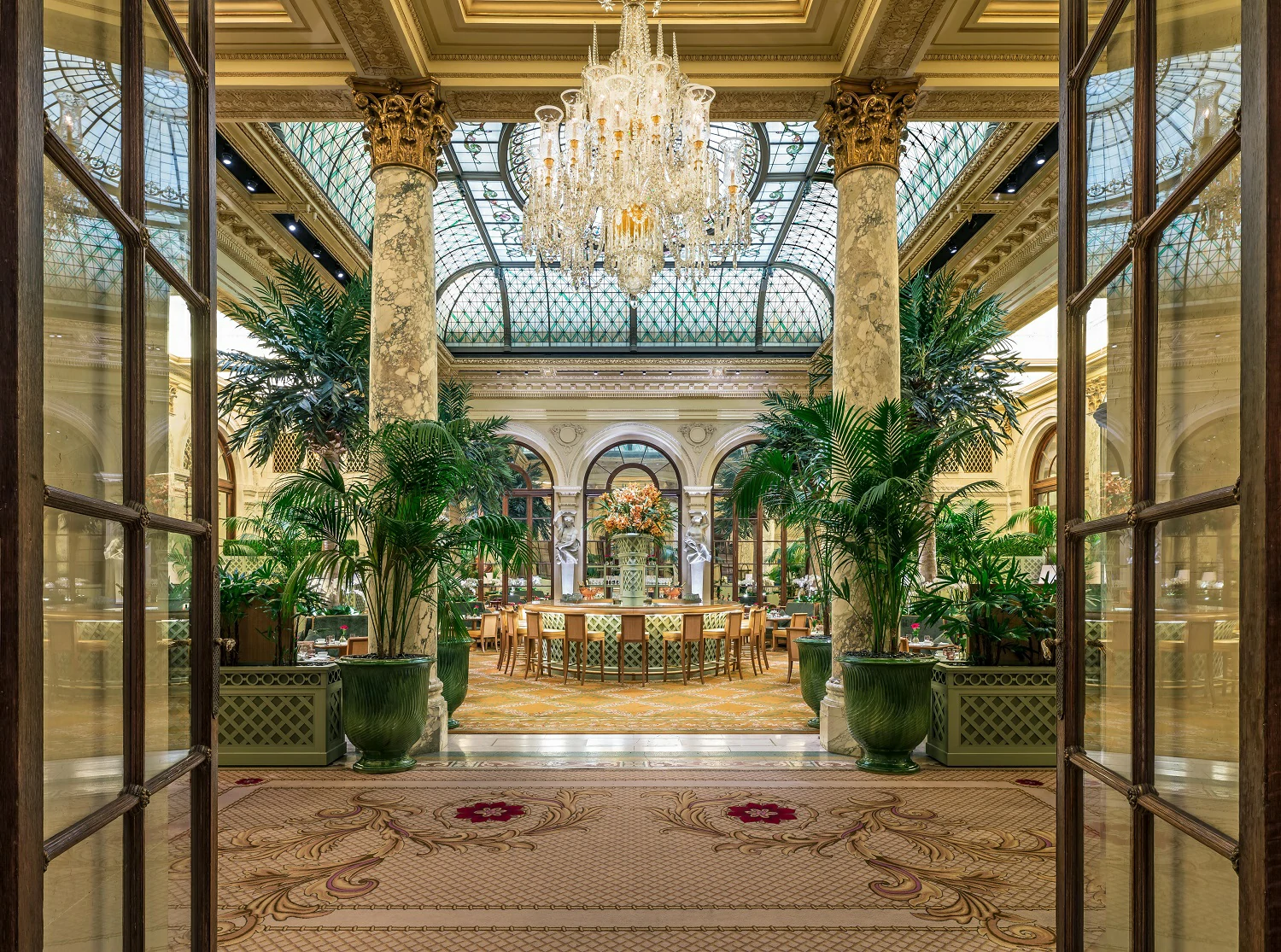
1. Square Footage and Over-the-Top Design
Palatial Spaces: The most expensive hotel suites are like mini-mansions. We’re talking thousands of square feet, multiple bedrooms, expansive living areas, and often over-the-top features like private cinemas or indoor waterfalls.
Designer Touches: These hotels often commission renowned architects and interior designers, incorporating expensive materials, custom furnishings, and original artwork. The price tag includes the experience of staying in a space considered a work of art in itself.
The “Wow” Factor: Top-tier suites aim to leave guests awestruck. Think jaw-dropping chandeliers, massive soaking tubs with panoramic views, or floor-to-ceiling windows framing iconic cityscapes.
2. Exclusive Amenities (private pools, butlers, personal chefs)
Privacy as the Ultimate Luxury: Many super-expensive hotels offer private amenities within the suites themselves. These might include plunge pools, hot tubs, saunas, or even dedicated spa treatment rooms.
Personalized Service on Demand: 24/7 butler service caters to a guest’s every whim, from unpacking luggage to arranging bespoke experiences with meticulous attention to detail. Private chefs create customized meals in-suite, offering a level of dining luxury beyond a typical restaurant.
Beyond the Basic: It’s not just about the amenities themselves; it’s about the exclusivity. Having a private pool at your disposal that’s only accessible to you creates a feeling unattainable at most resorts.
3. Location and Breathtaking Views
Prime Real Estate: Hotels in coveted locations, – think oceanfront in Malibu or Central Park-adjacent in NYC – command a premium simply due to the desirability of the address.
The View is Part of the Product: Sweeping ocean vistas, dazzling city skylines, or rooms perched over pristine canyons become selling points in themselves. Guests pay for front-row seats to nature’s grandeur or the buzz of an iconic cityscape.
Access to the Inaccessible: Ultra-luxe resorts in remote locations allow guests to feel like they’ve accessed a private slice of paradise, justifying a higher price.
4. Reputation and Exclusivity
The Power of Prestige: Some hotels cultivate a reputation synonymous with luxury. Their names alone evoke images of extravagance catering to the world’s elite, creating a sense of aspiration and status.
Limited Availability = Increased Demand: Whether through a small number of ultra-luxe suites or hotels operating at low capacity, cultivating scarcity drives prices higher. People are often willing to pay more for something they perceive as rare or difficult to obtain.
The “I Stayed There” Factor: For some, the ability to say they stayed at a specific iconic hotel is part of the experience. It’s a form of social currency.
Janice Lintz Expert Opinion
Janice Lintz, a seasoned travel consultant and hospitality writer, comments: “The most expensive hotels aren’t just selling a room for the night; they’re selling a complete experience. This means the ambiance, the service, the sense of access to something unattainable for most – these intangible elements play a major role in justifying the cost.”
Who Stays in the Most Expensive Hotels?
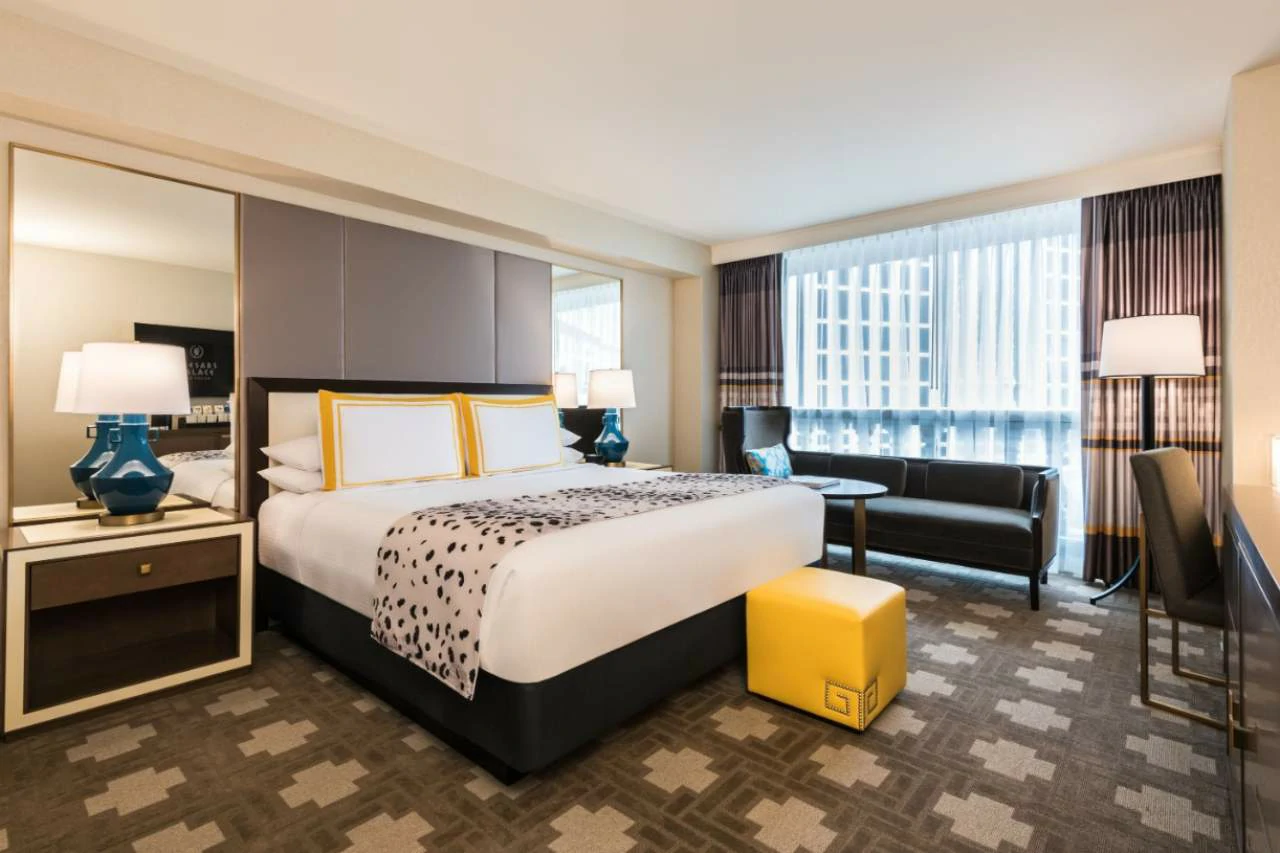
1. Celebrities and High-Profile Figures
Privacy and Discretion: Top-tier hotels provide the level of privacy and security that celebrities, politicians, and high-profile business figures demand. Staff are trained in discretion, and the properties often have measures in place (like private entrances) to minimize unwanted attention.
The “Scene” Factor: Certain iconic hotels cultivate an atmosphere of exclusivity that appeals to the “see-and-be-seen” crowd. Staying at these hotels can become a status symbol in itself.
Demanding Schedules: For celebrities on tour or with tight filming schedules, the convenience factor is key. 24/7 room service, private chefs, and on-demand amenities allow them to maintain a certain lifestyle while traveling.
2. The Ultra-Wealthy Seeking Ultimate Luxury
Beyond Five-Star: For those accustomed to the finest things in life, top-tier hotels represent a level of luxury that transcends what most would consider standard accommodations. These guests expect (and are willing to pay for) the very best.
Experiential Travelers: Many wealthy individuals prioritize experiences over material possessions. The ability to stay at a singular property, access exclusive activities, and enjoy personalized service becomes the ultimate indulgence.
Discretion Matters: While some wealthy travelers flaunt their affluence, others prioritize discretion. The most expensive hotels offer a level of privacy and anonymity appealing to those wishing to escape the spotlight.
3. Special Occasions and Once-in-a-Lifetime Experiences
Milestone Celebrations: Honeymoons, landmark birthdays, or big anniversaries often prompt people to splurge on unforgettable accommodations. These hotels cater to making these occasions extra special.
The Bucket List Factor: For some, staying at one of the world’s most iconic hotels is a lifelong dream. They may save and meticulously plan for years to afford a single stay.
“Treat Yourself” Moments: Even those without unlimited budgets may decide to indulge in the ultimate hotel experience, but perhaps for a shorter stay or by choosing a slightly less extravagant room within the property.
Steve Fricker Expert Opinion
Steve Fricker, a Las Vegas-based luxury travel expert, explains: “For many guests at these hotels, the experience transcends simply needing a place to sleep. It’s about exclusivity, feeling catered to on an extraordinary level, and perhaps most importantly, indulging in the idea that price truly is no object.”
The Debate: Is It Worth the Price?

1. The Argument for “Yes”
The Value of Unforgettable Experiences: Advocates of these hotels argue that the price tag purchases more than just a room. It’s about creating once-in-a-lifetime moments, and the memories made become priceless.
Comparable to Other Luxury Purchases: Some draw parallels between top-tier hotel stays and investments in designer goods, fine jewelry, or exclusive artwork. They reason that if one is willing to spend significant amounts on material items, a similar investment in an extraordinary experience holds equal value.
Incomparable Service and Amenities: Proponents emphasize that these hotels provide a level of personalized service and access to amenities that simply don’t exist at more moderately-priced properties. For those who value these to the utmost degree, the cost becomes secondary.
The Argument for “No”
Diminishing Returns: Critics contend that beyond a certain point, the premium paid for the most expensive hotels offers little additional tangible improvement. A luxurious hotel room is still a place to sleep, even with gold-plated bathroom fixtures.
Alternative Uses of Money: Many find the idea of spending thousands on a single night’s stay unfathomable when that money could be used for charitable donations, investments, or multiple more “practical” vacations.
The “Hype” Factor: There’s an argument that some hotels command such high prices simply because they can, fueled by reputation and the exclusivity that drives desirability.
2. Comparing Costs to Other Luxury Purchases
Consider this: The top suite at a hotel like The Mark might cost the same as a luxury sedan. Both can be considered status symbols providing their owners enjoyment.
However, a car holds resale value, while a hotel stay’s value becomes entirely experiential. Is one a better “investment” than the other? This depends entirely on the values of the individual.
3. The Subjective Nature of Value
Ultimately, whether these hotels are “worth it” depends on how one quantifies value:
Practical vs. Experiential: Those who prioritize tangible returns on investment will likely find these hotels absurd. Those who value unique experiences and creating memories might feel the price aligns with what they gain.
Relative Income: A $4,000 per night hotel stay might be unfathomable to someone making $50,000 a year, but a negligible expense for a multi-millionaire. Affordability plays a significant role in determining perceived value.
Personal Priorities: A passionate foodie willing to splurge on Michelin-starred dining might balk at an expensive hotel room, and vice-versa. How we choose to allocate our disposable income is entirely personal.
Sarah Dandashy Expert Opinion
Sarah Dandashy, a New York City-based luxury travel consultant, and author of the blog “The Luxe Handbook” offers: “Whether the cost is justified depends on how the guest defines luxury. Is it about exclusivity above all else? Unparalleled service? For some, these hotels deliver exactly what they’re looking for, and for others, they’ll always remain the realm of extreme extravagance.”
Conclusion
The world of ultra-luxury hotels holds endless allure. Whether we aspire to experience them ourselves or simply marvel at their extravagance, they offer a glimpse into a lifestyle where cost seems secondary to unparalleled indulgence.
While the price tag of these hotels might make them unattainable for most, we’ve learned valuable insights:
- Cost Isn’t Always Objective: The “most expensive” title fluctuates due to seasonality, demand, and location.
- Experience Matters: These hotels sell more than just a place to sleep. Guests pay for exclusivity, unmatched service, and access to the extraordinary.
- Value is Personal: Whether the experience justifies the price is a debate shaped by individual priorities and how we define luxury itself.
FAQs
1. Can I get a “deal” at one of these expensive hotels?
While rare, it’s sometimes possible. Consider these strategies:
- Travel during the off-season: Rates tend to be lower even at the most exclusive properties when demand is less.
- Check for promotions: Occasionally, hotels offer packages or deals, especially for new properties trying to generate buzz.
- Inquire about less extravagant rooms: A standard room at a top-tier hotel might still cost a pretty penny but be significantly cheaper than their signature suites.
2. Are there alternatives to get a taste of a top-tier hotel without the hefty price tag?
Absolutely! Here are a few options:
- Dine at the hotel restaurant: Many acclaimed restaurants are located in the most expensive hotels, open to non-guests for reservations.
- Visit the spa: Treat yourself to a luxurious spa treatment, often granting access to some of the hotel amenities.
- Enjoy the bar or lobby: Grab a drink or soak up the ambiance. You might catch a glimpse of the hotel’s clientele and feel fancy for a fraction of the price of staying there.
3. Is it ever “worth it” to splurge on one of these hotels?
That depends entirely on you! Consider these scenarios:
- Milestone Celebration: If it’s a bucket list dream for a special occasion, the splurge might hold sentimental value.
- Experiential Traveler: If you prioritize unique experiences over material goods, a hotel stay might be a fulfilling investment.
- “Just Because”: If you have the financial means and curiosity piques you, why not? Sometimes, a touch of excess can be its own reward.
4. Beyond the US, where are some of the world’s most expensive hotels?
The global luxury hotel scene is vast! Prepare for sticker shock at properties like:
- The Burj Al Arab in Dubai – renowned for its sail-shaped design and opulent suites
- The Laucala Island Resort in Fiji – a private island getaway catering to the ultra-elite
- Hôtel Martinez in Cannes, France – a French Riviera classic with a star-studded guest history
